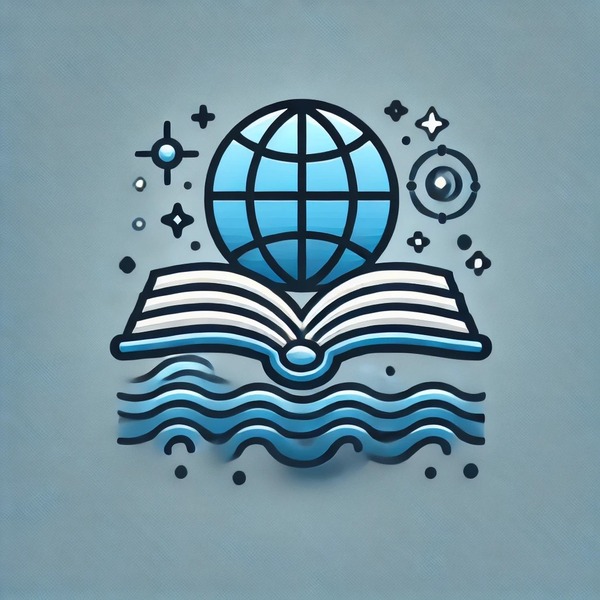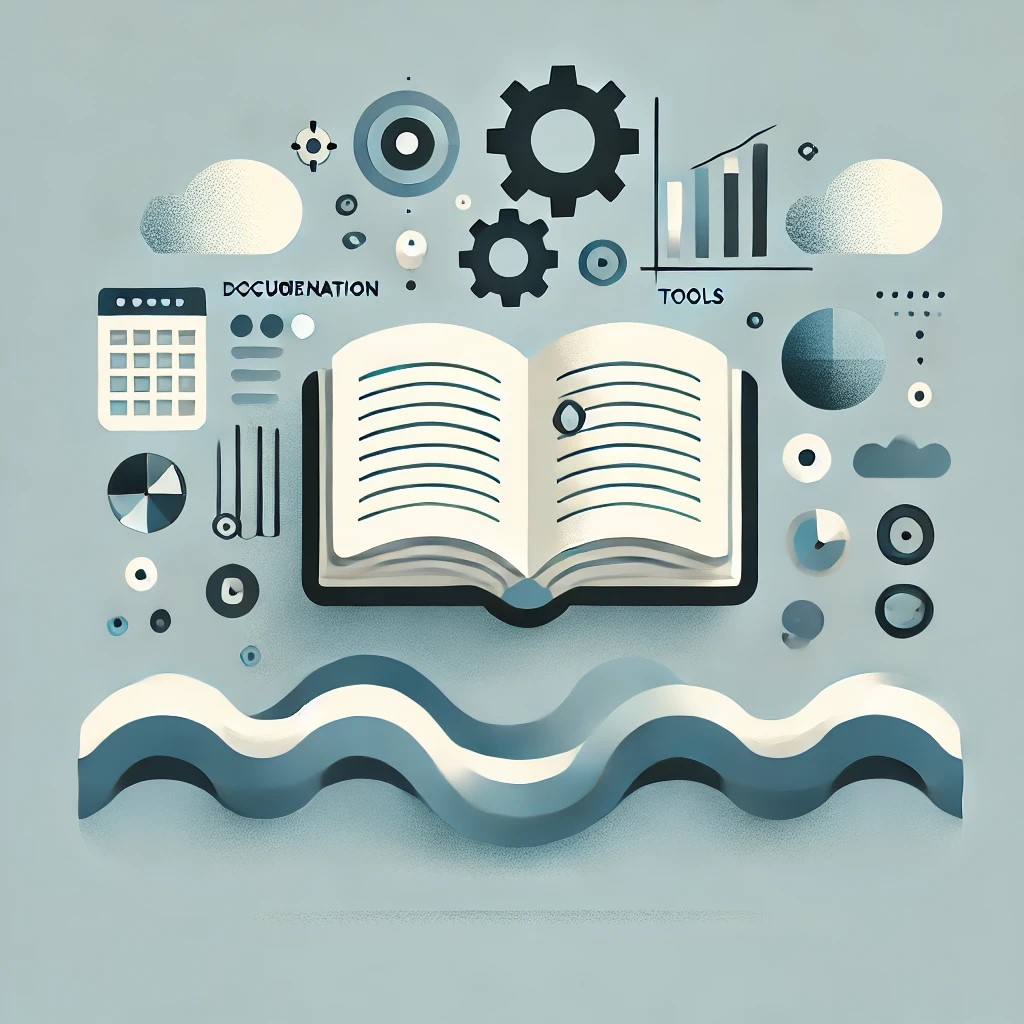
The GEO Knowledge Hub is a centralized, cloud-based digital Earth Observation (EO) application library. Developed as part of the Group on Earth Observations' GEOSS infrastructure, the Geo Knowledge Hub (GKH) promotes Open Knowledge by ensuring that EO applications are discoverable, replicable, and reusable by users around the world.
At its core, the GKH shares complete Knowledge Packages (KPs), bundling all relevant data, algorithms, code, documentation, and workflows to understand and apply a given EO solution.
You will gain:
- Access to a global repository of operational EO applications and knowledge packages.
- Complete, reusable EO solutions with all underlying data, tools, and documentation.
- The ability to replicate methodologies and apply EO applications in new geographic or thematic contexts.
- Insight into best practices for structuring and documenting EO solutions for community use.
- A gateway to connect with GEO’s global community of scientists, data managers, and policymakers working on climate, biodiversity, disaster risk reduction, agriculture, and more.
|
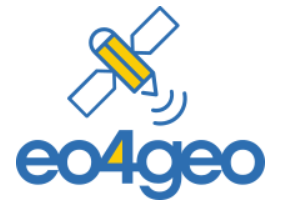
EO4GEO is designed to bridge the skills gap in the space and geospatial sectors. EO4GEO focuses on strengthening the workforce by aligning education and training with industry needs. The project promotes innovative approaches to training, such as case-based learning, collaborative scenarios, living labs, and on-the-job training.
You will gain:
- Insight into the skills needed for emerging careers in EO and geospatial industries.
- Access to educational tools, training resources, and curricula tailored to real-world applications.
- Exposure to interdisciplinary learning methods like co-creation, case studies, and problem-solving labs.
|

The Copernicus Marine Service offers a collection of interactive e-learning materials to help understand and apply oceanographic data effectively.
You will gain:
- Hands-on experience through guided Jupyter Notebooks and datasets.
- Thematic knowledge across ocean information systems, ecosystem health, and marine model products.
- Technical skills in data access, analysis, and visualization using real marine datasets from the Copernicus platform.
|

The EMODnet Portal provides a gateway to a vast array of marine data, metadata, and data products. It covers seven key themes: bathymetry, geology, physics, chemistry, biology, seabed habitats, and human activities, offering insights into the entire marine environment from coastal zones to the deep ocean.
You will gain:
- Familiarity with accessing and using multidisciplinary marine datasets.
- Skills to analyze spatial data related to ocean science and the Blue Economy.
- Insights into marine trends such as vessel traffic, offshore infrastructure, and seabed mapping.
- An understanding of how marine data supports EU Maritime Spatial Planning.
|

SeaDataNet is an infrastructure that connects open digital repositories to manage and share marine data from ships, automated monitoring systems, and satellites. It is a virtual data center, which brings in situ and satellite data through standardized protocols and cutting-edge IT tools.
You will gain:
- Skills to access and work with integrated, quality-assured marine datasets.
- Understanding how to use metadata, data products, and archival resources from diverse ocean observation platforms.
- Insights into long-term data preservation, reuse, and data provenance, authenticity, and quality control in ocean science.
- Awareness of best practices in marine data management, including standards for communication, confidentiality, and ownership.
|

The Ocean Observatories Initiative (OOI) is a U.S. National Science Foundation-funded network of more than 900 instruments delivering real-time oceanographic data from across the globe.
You will gain:
- Access to the OOI Data Explorer for searching, downloading, and analyzing live and archived ocean data.
- A collection of publications and scientific highlights revealing the latest discoveries in ocean science.
- A dedicated Resources section for educators, offering tools to bring real-time ocean data into undergraduate courses.
- Opportunities to build students’ data literacy, critical thinking, and scientific reasoning by exploring real-world marine challenges.
- Webinars and educational content supporting faculty and instructors in designing coursework that integrates live ocean observations.
|

The NASA Ocean Biology Processing Group (OBPG) specializes in managing and analyzing ocean color and biological data from NASA, NOAA, and international satellite missions.
You will gain:
- Access to satellite-derived ocean color data and bio-optical products.
- Understanding of long-term ocean changes and primary productivity.
- Exploration tools and resources used in mission support, calibration, and validation.
|

Maritime Spatial Planning (MSP) is an integrative, cross-sectoral process designed to organize the use of marine space more effectively and sustainably. MSP helps coordinate diverse maritime activities, including energy, shipping, fishing, and conservation, while ensuring healthy marine ecosystems.
You will gain insight into:
- The functional approach of MSP combines ecological goals with economic and societal needs.
- Types of MSP outcomes, ranging from binding spatial plans and permits to strategic visions and best-practice guidelines.
- Key benefits such as reduced sector conflicts, better investment conditions, enhanced cross-border collaboration, and early environmental impact assessments.
|

The Blue-Cloud platform is an open-science environment built to support multidisciplinary marine research. It offers access to data and tools, enabling scientists to collaboratively explore, analyze, and share marine datasets across disciplines.
You will gain:
- Access to the Data Discovery & Access Service (DD&AS), a user-friendly, FAIR-compliant system for discovering and retrieving ocean data from federated European marine infrastructures.
- Tools within the Virtual Research Environment (VRE), an integrated workspace offering analytical, harmonization, and visualization tools for diverse marine datasets
- Thematic Virtual Labs (VLabs) dedicated environments focused on topics like plankton genomics, fisheries, carbon dynamics, and aquaculture.
- Workbenches for Essential Ocean Variables (EOVs), specialized tools to manage, validate, and process in situ data for key ocean indicators such as nutrients, salinity, and chlorophyll.
|

The Ocean Literacy Portal is a global hub of educational and awareness-raising resources designed to foster a deeper understanding of the ocean’s role in our lives. The Portal helps build the knowledge, values, and behaviors needed to become ocean-literate citizens, empowered to make informed and responsible decisions about the ocean and sustainability.
|

The OceanTeacher Global Academy is an internet-based learning platform offering classroom, blended, and online training focused on ocean science and services. Learners gain access to high-quality courses that build capacity across all IOC Member States in areas such as ocean observations, research, and sustainable development.
|

OBIS is a gateway to comprehensive data on ocean biodiversity and biogeography. It supports global efforts to monitor, understand, and protect marine life by integrating biological data with environmental information such as climate and chemistry. By offering standardized tools, best practices, and open-access datasets, the platform empowers researchers, policymakers, and educators to address challenges like climate change, biodiversity loss, and marine spatial planning.
You will gain:
- Access to a standardized database on marine organisms' diversity, distribution, and abundance.
- Tools and resources for climate and ecosystem monitoring, spatial planning, and conservation strategy development.
- Guidance on integrating biodiversity data with environmental datasets to support policy and management decisions.
- Enhanced knowledge of essential ocean variables and internationally agreed-upon standards and indicators.
- A collaborative platform to connect with global marine biodiversity and ecosystem monitoring initiatives.
|
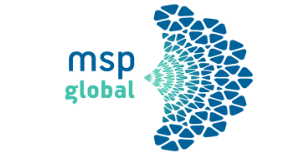
The MSPglobal Initiative, led by UNESCO's Intergovernmental Oceanographic Commission (IOC) and the European Commission, advances Marine/Maritime Spatial Planning (MSP) worldwide. MSP is a collaborative public process that organizes where and when human activities occur in marine areas to meet ecological, economic, and social goals.
MSPglobal accelerates MSP adoption by promoting ecosystem-based, transboundary, and sustainable Blue Economy planning while building global capacity and improving communication among stakeholders.
You will gain:
- Knowledge of best practices for ecosystem-based and transboundary marine spatial planning.
- Access to international guidelines, training resources, and policy tools for MSP Insights into real-world MSP processes, case studies, and collaborative projects.
- Capacity-building opportunities to apply MSP principles in your region or field.
- Opportunities to participate in the global dialogue on ocean governance through MSP Forums.
|

EuroSea is a European initiative aimed at improving ocean observing and forecasting systems within a global context. The project advances scientific knowledge on ocean climate, marine ecosystems, and their resilience to human impacts, while highlighting the critical role oceans play in supporting human well-being, safety, sustainable development, and the blue economy.
You will gain:
- Understanding the importance of coordinated, long-term ocean observations.
- Insights into how enhanced forecasting services support climate science, coastal resilience, maritime activities, and ocean health.
- Access to developments in FAIR (Findable, Accessible, Interoperable, Reusable) data practices for marine science.
- Awareness of the value of integrated data services like Copernicus Marine Service, EMODnet, and SeaDataNet.
- Knowledge of the role of user engagement in shaping ocean observing systems for the future.
|

The Mediterranean Blue Economy Stakeholder Platform (MedBESP) is an online hub dedicated to fostering collaboration, knowledge sharing, and capacity-building around the blue economy in the Mediterranean region. Acting as a "one-stop shop," MedBESP offers a wide range of resources, including reports, handbooks, training materials, webinars, newsletters, and information about research centers and universities active in blue economy topics.
You will gain:
- Access to up-to-date reports, handbooks, and publications relevant to blue economy sectors.
- Training opportunities to develop skills and knowledge in maritime governance, sustainable blue economy development, and regional cooperation.
- Resources to support cross-sector collaboration and foster sustainable economic growth in the Mediterranean coastal and marine sectors.
|
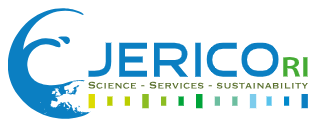
JERICO-RI is a European research infrastructure that provides a comprehensive and integrated approach to observing and understanding coastal marine environments. It connects various research platforms across land, atmosphere, and ocean, offering a crucial link in Europe’s marine observation system. Designed to support collaborative and interdisciplinary research, JERICO-RI gives users access to high-quality data, cutting-edge facilities, and services tailored to coastal monitoring and forecasting needs.
You will gain:
- Access to FAIR (Findable, Accessible, Interoperable, Reusable) coastal data and observation tools.
- A deeper understanding of how coastal marine systems are changing over time.
- Opportunities to collaborate with a pan-European network of marine researchers.
- Support for advanced coastal modeling, forecasting, and decision-making.
|
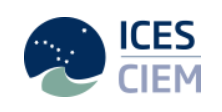
The International Council for the Exploration of the Sea (ICES) is a leading marine science organization committed to advancing scientific knowledge of marine ecosystems and promoting sustainable ocean use. It serves as a platform for sharing impartial evidence and expert advice on the state of the seas and oceans.
You will gain:
- Access to reports, strategic plans, and advisory resources that inform ocean conservation and sustainable marine management.
- A better understanding of ecosystem-based management and the science behind it.
- Tools to support decision-making in conservation, fisheries, marine policy, and climate resilience.
- Insights into international collaboration in marine science across ICES member countries.
|

The WestMED Initiative tackles pressing regional challenges by promoting marine safety and security, sustainable blue growth and job creation, ecosystem preservation, and biodiversity protection.
You will gain:
- Access to official policy documents, executive summaries, infographics, project fiches, and webinars addressing maritime governance and blue economy topics.
- Reports from major stakeholder events and Hackathons, offering insights into regional trends and collaborative initiatives.
- Knowledge of how national and regional stakeholders are aligning around shared blue economy goals to shape resilient, inclusive, and forward-looking marine strategies.
|

EuroGOOS coordinates and promotes sustained ocean observing in European seas to support a wide range of marine and maritime activities. It fosters collaboration among working groups, task teams, and observing networks to ensure the delivery of high-quality marine data and services.
You will gain:
- Access to coordinated and sustained ocean observation networks across Europe.
- Involvement in shaping and applying strategies for data collection, sharing, and standardization.
- Engagement with expert communities through EuroGOOS working groups and regional systems.
- Insights into best practices and standards that support marine research, forecasting, and blue economy development.
|
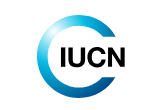
IUCN serves as a global authority on the status of nature and the actions needed to safeguard it. Through collaborative research, global partnerships, and extensive conservation projects, IUCN supports informed decision-making, sustainable development, and effective environmental governance.
You will gain:
- Access to globally recognized environmental standards, guidelines, and tools.
- Knowledge from over 75 years of conservation leadership.
- Insights into successful international conservation projects and practices.
- Opportunities for collaboration across government, civil society, indigenous groups, and academia.
- A platform for learning how science and traditional knowledge are used to combat habitat loss and support ecosystem restoration.
|

WISE Marine is an interactive platform that provides access to comprehensive data and information on the state of Europe's seas, the pressures they face, and the actions being taken to protect and conserve them. Developed to support evidence-based marine policy and public awareness, the portal integrates multiple datasets and tools to explore marine conditions across the EU.
Through this resource, you can:
- Visualize and analyze marine spatial data through the WISE Marine Map Viewer.
- Access Marine Protected Area (MPA) statistics and track their status and trends in Europe.
- Explore detailed datasets and dashboards from the Marine Strategy Framework Directive (MSFD).
- Review catalogues of policy measures, including those for shipping and ports, to understand the management actions being implemented.
|

OCTO is a global platform that connects over 100,000 ocean professionals in 120 countries. Through programs and community-driven initiatives, OCTO empowers marine conservationists, researchers, and resource managers with the knowledge and tools to apply best practices in marine ecosystem protection and sustainable management.
You will gain access to:
- OCTO Webinars: Regular webinars for staying current on ocean research and tools.
- MPA Help: Guidance on managing marine protected areas.
- EBM Help: Support for ecosystem-based management practices.
- Ocean Plastic List: Information exchange to combat ocean plastic pollution.
- Custom Solutions: Tailored consulting services for conservation and resource management.
|























